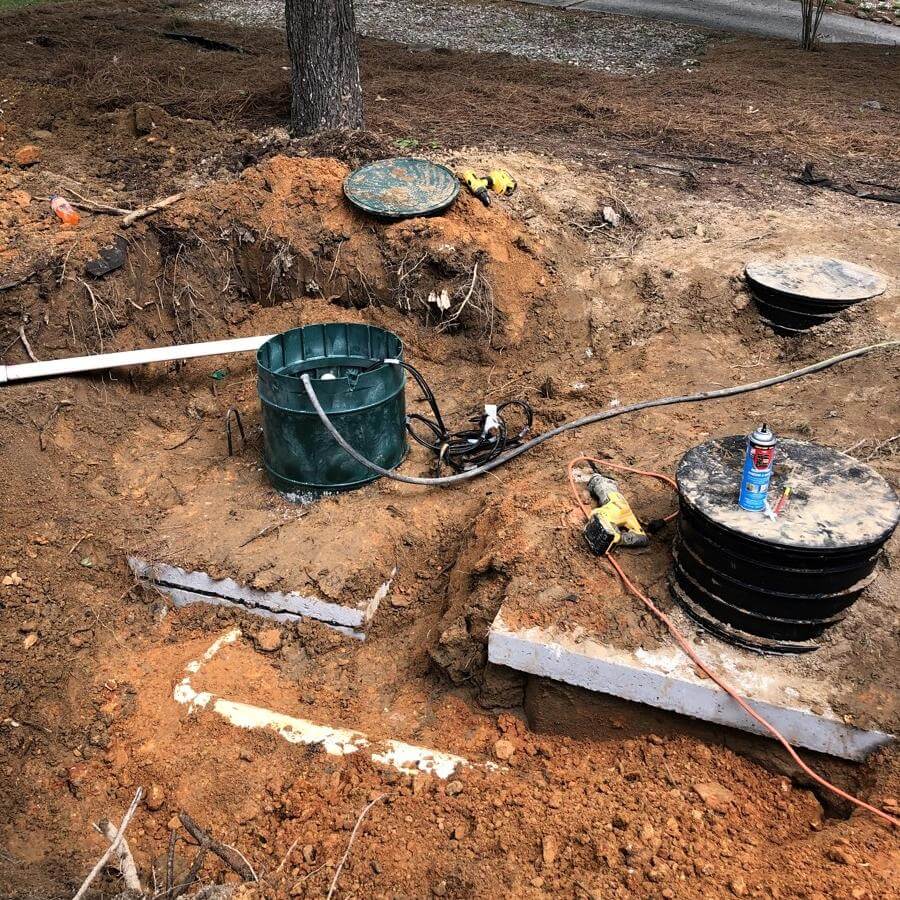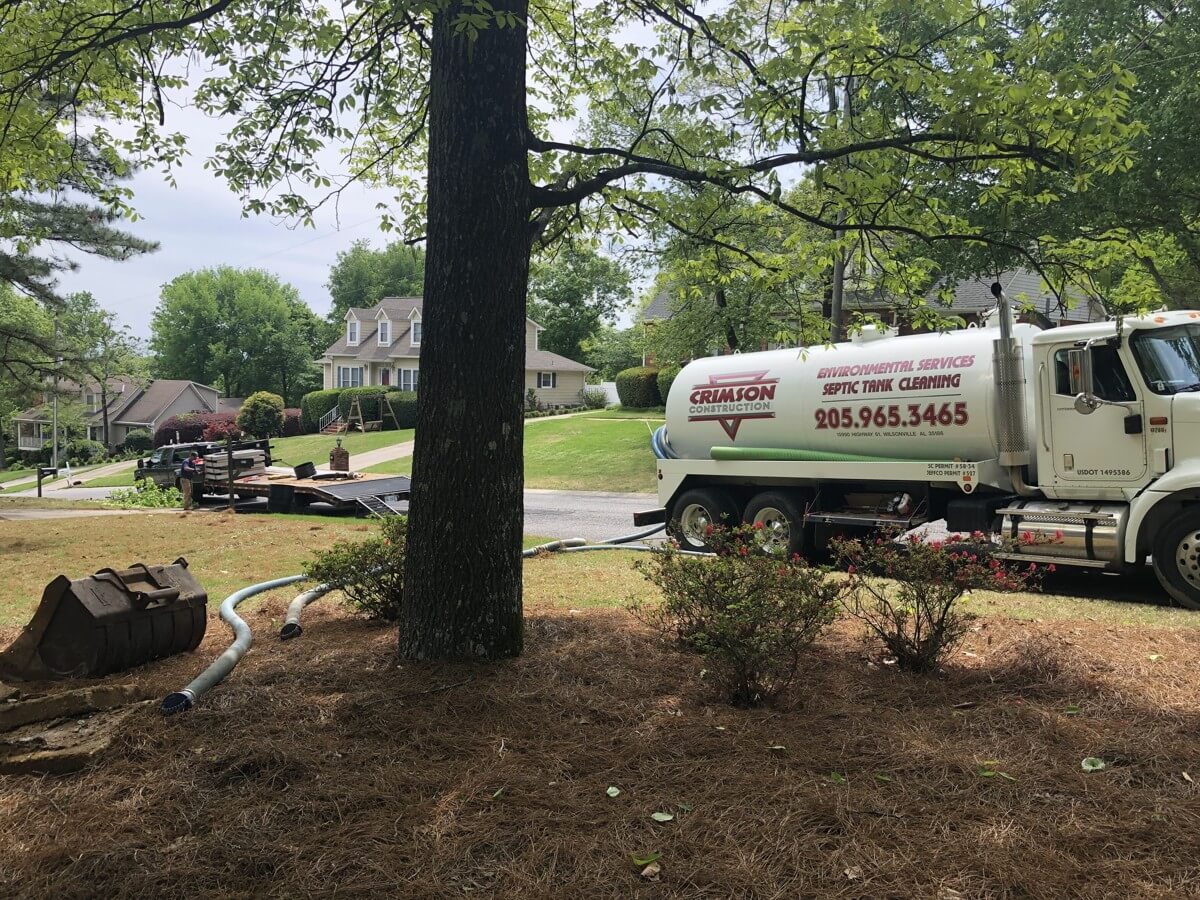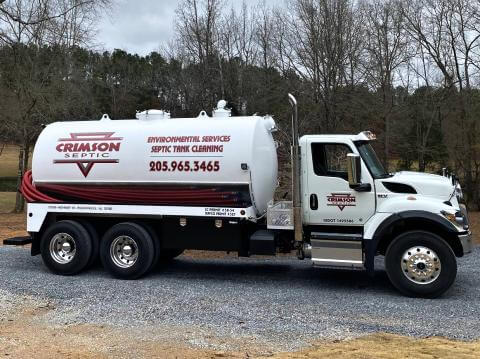Septic Tank Repair
People think the worst when it comes to septic tank issues. Scared to their inner being that there are major problems. Or worse that their entire septic system needs to be replaced.
Thinking they are about to spend thousands of dollars to replace their entire system. Then the thoughts of how crooked septic tank companies can be. Neighbors and family telling you that the septic companies don’t even try to do a repair. According to them, “replace always” is the battle cry.
Everybody you know that experienced septic problems had their entire system replaced.
Everyday we receive the reluctant and fearful phone calls from anxious customers who are experiencing problems. If you are one of these folks, call Shane. He will do right by you. Lots of times, you need a repair and that is all. There are times when there is an entire system failure, but our professionals look for a problem to fix – not for a system to replace. Shane and his crew will be honest and fair. They have integrity and don’t try to sell you a bill of goods.
Relax! Chances are we can fix it and not replace it. Our crew members do not make a commission off their service to you. Thereis no incentive to add unneeded services or a reason to jack up the price for more money.
Crimson Construction Septic Tank Repair Steps
- When you call Shane, he will ask some basic questions over the phone.
- Shane will explain to you what to expect when he arrives.
- Especially with septic tank repair, we prefer for the owner to be home while we inspect your septictank. It is important to us that our customers understand what we are going to do. Our customers have a right to know what he/she is paying for and what the cost is for the septic system work.
Do you need a need a septic tank repair? What are the warning signs?
- Slow drainage inside your house. Usually, if only one drain is clogged that is a stopped-up drain – not a septic issue. If you experience more than one slow drain or more than one backing up, then there is a high chance your septic tank needs to be repaired.
- Do you notice odors inside of your home?
- Does sewer enter your home, usually the lowest drains in the basement?
- Do you start seeing soggy spots in your yard which also smells bad?
- What about spots around your backyard that are much greener than others, that could be a sign you have a broken-field line. The broken-field line could be feeding the grass and make it grow faster. “The Grass Does Grow Greener Over The Septic Tank” – is not just a movie – it is a real thing!
- Wet spots above the septic tank.
- Do you have access to your septic tank lid? If you open the septic tank (not recommended – call us) and the level scum overflows, that is a sign for a septic tank failure.
Understanding the Importance of a Healthy Septic System
Your septic system is more than just a waste disposal mechanism. It's an intricate ecosystem that protects your home, environment, and community from wastewater contamination. Any malfunction can pose a risk to your property and the environment. It’s understandable to feel anxious at the prospect of system failure, especially with tales of dishonest contractors. At Crimson Construction, we believe in transparency, honesty, and prioritizing repairs over unnecessary replacements.
The Financial and Environmental Benefits of Timely Repairs
Ignoring minor septic issues today might lead to significant problems tomorrow, both financially and environmentally. Small repairs can prevent larger, more expensive replacements in the future. Additionally, a malfunctioning septic system can leach untreated waste into the environment, posing a threat to local water sources and ecosystems. By addressing problems early, you not only save money but also contribute to a healthier environment.
What Makes Crimson Construction Different?
In a world filled with quick-fix solutions and profit-driven approaches, Crimson Construction stands apart. Our commitment lies in genuine service delivery, where understanding your concerns and addressing them transparently is our modus operandi. Shane and the team function on a strong ethos of integrity. The assurance we bring isn't just in our words, but also in our actions. Every repair, every consultation, every call – it's all driven by a desire to be of genuine service to our community.
Learning from the Past: Historical Perspectives on Septic Systems
The evolution of septic systems over the decades showcases how engineering and environmental understanding have improved over time. Homes built over 30 years ago might have shorter field lines, making them more susceptible to clogs. By being aware of these historical differences, homeowners can make more informed decisions regarding their septic needs, ensuring that their systems are up-to-date and environmentally efficient.
List of septic tank repairs
- Cracked septic tank – septic tank is cracked, and raw sewage leaks out. In this case, the septic tank has to be replaced, the fields lines can stay.
- Broken lid replacement/new lid installment
- Broken field line – that happens quite often in Alabama. This happens mostly because of tree roots. In this case, we replace the field lines.
- Clogged field line – septic tank wasn’t maintained (pumped) on a regular basis.
- Replacing bacteria inside of the septic tank.
- Septic tank pump replacement – when your field lines are higher than your septic tank, you have a septic tank pump that pumps sewage to your field lines. Life expectancy of the pump is 7-10 years.
- Septic tank replacement – if your home was built more than 30 years ago, you probably have only 100 feet of field lines. Today the standard is 300 feet. If your septic tank starts clogging up, it may need to be replaced. We will replace the entire system and bring it up to the current codes.
- Field lines replacement – if your septic tank was neglected and not pumped for years and you are having problems with your field lines, you probably need the field of lines replaced.
Cracked Septic Tank
A cracked septic tank can turn into a homeowner's worst nightmare as it allows raw sewage to seep out, contaminating the surroundings. Addressing this promptly is crucial. While the field lines might remain unaffected, the compromised tank itself should be replaced immediately to ensure both environmental safety and the efficient functioning of the entire septic system.
Broken Lid Replacement/New Lid Installment
Over time, the septic tank lid can deteriorate or get damaged. Replacing or installing a new lid is not only about aesthetics but also ensures that the tank remains sealed and inaccessible to pests or external debris. A sturdy, well-fitted lid is essential for safety and proper tank functionality.
Broken Field Line
Alabama's soil composition and rich vegetation often lead to frequent encounters with tree roots penetrating septic field lines. These roots can cause breakages or blockages in the system. To resolve this, our team replaces the affected field lines, restoring the unobstructed flow of wastewater.
Clogged Field Line
Maintaining a septic tank is crucial, and regular pumping is an essential aspect of this maintenance. A neglected tank can result in clogged field lines due to accumulated sludge and debris. Regular inspections and pumping can prevent this issue, ensuring longevity and smooth operation of your septic system.
Replacing Bacteria Inside the Septic Tank
A septic tank relies on beneficial bacteria to break down solid waste. Over time or due to certain chemicals, this bacterial balance can be disrupted. Introducing new bacteria into the tank helps restore its balance, allowing it to function optimally and reduce the risk of blockages.
Septic Tank Pump Replacement
In instances where field lines are positioned higher than the septic tank, a pump becomes essential to transport sewage effectively. Like all mechanical components, these pumps have a lifespan, averaging between 7 to 10 years. Timely replacement ensures that wastewater moves efficiently without causing backups.
Septic Tank Replacement
Older homes, especially those constructed over 30 years ago, were equipped with shorter field lines, making them more susceptible to clogs. Modern standards call for longer lines, about 300 feet in length. If your older system is frequently clogging, it might be time to consider upgrading to a new septic tank, adhering to current codes and regulations.
Field Lines Replacement
Extended neglect, often marked by a lack of regular pumping, can compromise the efficiency of field lines. If you're encountering issues with your field lines, and your septic tank has been overlooked for years, the best course of action might be a complete replacement of these lines, ensuring the unhindered flow of wastewater.




